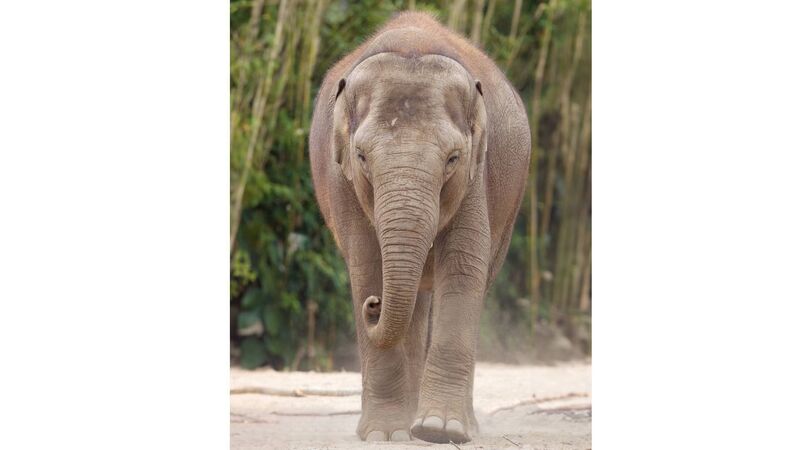Dublin Zoo 'devastated' to announce death of second elephant from incurable virus

Zinda is the second elephant to die from suspected elephant endotheliotropic herpesvirus (EEHV) following the death of Avani, aged eight, on July 1. Picture: Dublin Zoo
Dublin Zoo has announced the death of a second elephant from an incurable virus.
Staff and management at the zoo said they were “devastated” to announce the loss of Zinda, the “beloved 7-year-old elephant".










